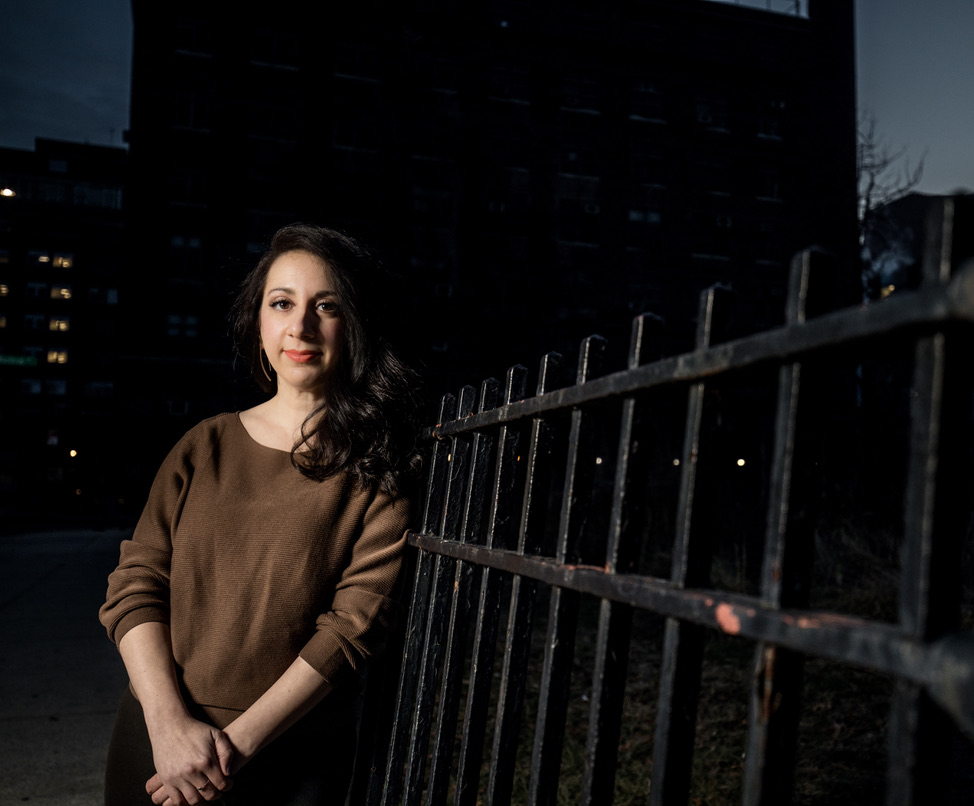Published on
Updated on
This year is not the first time MICF Guest Composer Mary Kouyoumdjian has been a part of the festival. In 2016 she was a Resident Composer still learning her art and forming new alliances with groups such as Resident Ensemble Alarm Will Sound. Paper Pianos, a piece she was working on back then, grew into an evening-length multimedia “audio documentary” that was a finalist for the 2024 Pulitzer Prize in Music. We conducted an email interview with Kouyoumdjian to learn about her past experiences at MICF and what she expects from this year’s festival.
You attended MICF in 2016 as a Resident Composer. What do you remember about that experience?
I had long-admired Alarm Will Sound, and I had applied to the MICF residency once before, so it was a dream come true to create something for this iconic and extraordinarily impactful group for contemporary music. In addition to creating sounds with fabulous humans, it was really special to deepen friendships with AWS, 2016’s mentors/composers Oscar Bettison and Erin Gee, and the other resident composers that year. Those early conversations around Paper Pianos really stuck with me, particularly a conversation with Erin around granting myself the permission to call myself a “documentarian,” which had been a label I had felt impostor syndrome around, having approached the medium through music and not film or journalism. What a difference that one conversation made in my work and identity!

Back then, you had begun work on your piece Paper Pianos. What was the kernel of that piece that you brought to MICF and how did attending the festival help you develop it?
At the time of MICF, AWS and I didn’t exactly know that Paper Pianos would become a larger evening-length work. I had an early conversation with Alan Pierson, AWS’s artistic director, about the possibility of an evening-length collaboration, and we both agreed that the material I wrote for MICF could be a way to test run not just the piece itself, but a long-term collaboration. What I brought in was a 10-minute work that had the general arc of what would later become a 90-minute staged multimedia work centering on the refugee crisis through recorded interviews with refugees and refugee resettlement workers about their experiences that led them to placement in the state of New York.
As part of MICF, new music ensemble Alarm Will Sound performs the Resident Composers’ pieces. In your case, that was the movement “You are not a kid” from Paper Pianos. What was it like hearing a group like that perform your work for the first time? How significant is it for a young composer to experience something like that?
When Alarm Will Sound performed “You are not a kid,” I was 33 years old, mostly writing small chamber music, orchestrating other composers’ works for orchestra and film, and I had been desperately reaching for an opportunity to have a large ensemble perform my work. Having the opportunity to write for this large group of musicians not only opened up new orchestration curiosities for me, but invited me to take creative risks and really push myself. Alarm Will Sound doesn’t just play music––they speak boldly, and they offer the example and environment for collaborators to do the same.
How did your relationship with AWS continue afterwards?
The simplest way I can express our relationship is that they are my most cherished humans and close family. I had a deep connection with them through my late partner, composer/performer Matt Marks, who had been a founding member of the group when they started at Eastman School of Music. And to supplement that, we’ve now all been collaborating on Paper Pianos for eight years, not to mention other collaborations with Alan and ensemble members that have stemmed out of this work. We’re just at the beginning of our beautiful and lifelong relationship!
Paper Pianos grew into an evening-length multimedia work that became a finalist for the Pulitzer Prize. Are there plans for future performances of the piece?
Yes! AWS, our brilliant stage director Nigel Maister, projection artist Kevork Mourad, stage designer Afsoon Pajourfar, and lighting designer Seth Reiser, and I have some soon-to-be-announced performances coming up! Please check our websites www.alarmwillsound.com and www.marykouyoumdjian.com for the announcements.
You are returning to MICF, this time as a Guest Composer who will work with and mentor the Resident Composers. What do you anticipate that experience will be like? What do you hope to impart to young composers who are now at the place that you once were?
I am beyond excited! It’s an amazing thing to work with guest composers who are at the same stage of their collaborations with Alarm Will Sound as I was back in 2016, and to get to say “Your piece doesn’t have to stop here! This can be the very beginning of a continuing idea and collaboration!” I feel so lucky to have had incredible and generous mentors in my creative life (co-MICF mentor George Lewis being one of them), and I’m always happy for the opportunity to pay that creative generosity forward!